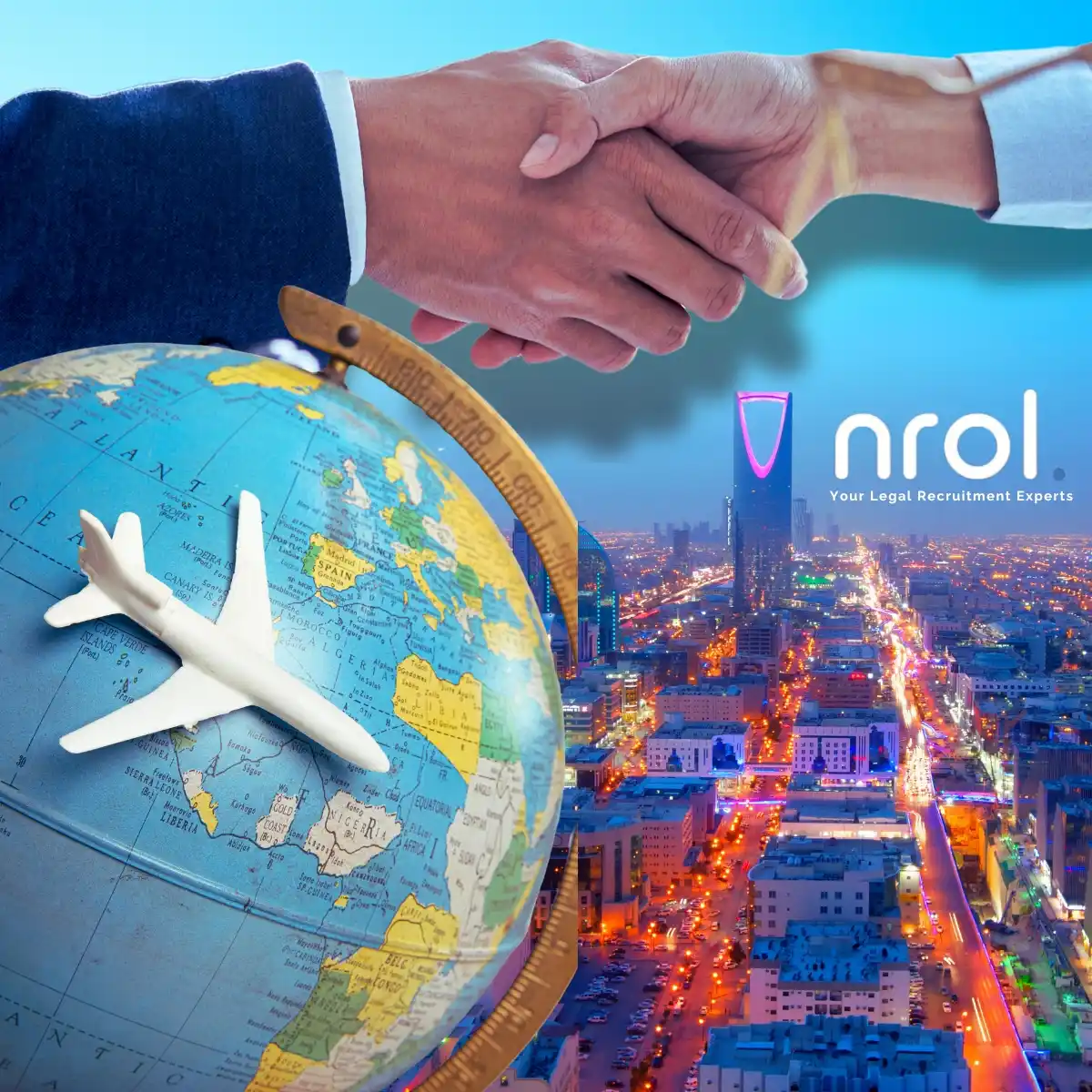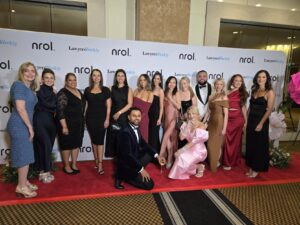Almost one in three Australians were born abroad, and one in five speak a language other than English at home. What does the ability to speak additional languages add to a legal career?
When Mandarin-speaking Linda Huan migrated to Australia from China more than 20 years ago, she swapped a position teaching English at Nanjing University for a new career as a corporate lawyer.
A serendipitous experience at her first job in Australia, which she landed within one month of arriving in the country, piqued her interest in the profession. “I was a personal assistant to an official liquidator,” Huan says. “We were doing a lot of insolvency administration and litigation – that was my initial exposure to law. It’s how I became interested and decided to study law at university.”
After earning a Juris Doctor degree at Monash University, Huan has spent almost two decades working in all areas of corporate law at firms like DLA Piper and Corrs Chambers Westgarth. She’s now special counsel at Macpherson Kelly, which has offices in Sydney, Melbourne and Brisbane, and co-head of the firm’s China Group, which advises Australian individuals and businesses doing business in China, and vice versa.
Huan says being bilingual and biliterate in Mandarin continues to be an asset in her career. “Even though documents are governed by Australian law and English is the prevailing language, clients – whether it’s a private company in China or government investor or state-owned entity – will often prefer to speak in Chinese,” she says.
“They often feel more comfortable expressing themselves in their native language and knowing that I’m here to help with receiving the instructions is highly valued. They also usually want translation for English-speaking members of our team, which I can do.”
The legal profession has remained disproportionately monolingual and monocultural despite decades of multicultural influence in Australia, but there are signs things may slowly be shifting. Lawyers like Huan, who speak languages in addition to English, are being seen for the value they bring to clients and firms.
“For lawyers who are multilingual, it gives you an edge professionally in mid- to larger-scale firms that work with international clients and do a lot of cross-border transactions,” she says. There are also opportunities in smaller suburban firms that service communities with particular language profiles.
Yet in many instances, multilingualism remains a proxy for being from a diverse, non-white background – which is a well-documented barrier to entry and acceptance in a stubbornly white, Anglo-Celtic-dominated profession. Perhaps the question is not if multilingualism is an asset but whether it’s valued and harnessed to its full extent by the legal fraternity.
Cross-cultural lawyering
In line with the general population of NSW, 30 per cent (11,514) of the state’s 38,265 solicitors were born overseas, according to the Urbis 2022 Annual Profile of Solicitors. Of these, 42 per cent were born in Asia – the only region from which the share of migrants has risen significantly, up from 35 per cent in 2011. The next most common origin of migrants is the UK and Ireland (14%), followed by Oceania (10%) and Europe (10%). This pattern is reflected in linguistic diversity across the profession, with 22 per cent of solicitors speaking a language other than English at home, compared to 27 per cent among the general population. The most spoken language is Mandarin (19%), followed by Cantonese (16%), Arabic (11%) and Greek (7%). Speakers of Hindi and Spanish each number three per cent. In the broader Australian community, Mandarin is also the most spoken additional language, with Arabic, Vietnamese and Cantonese coming in next.
Migrant status and linguistic diversity frequently overlap – but not always. For second- and third-generation Australians like Colin Yuan, a second-year lawyer in the technology, media and telecommunications team at Maddocks in Sydney and the national secretary of the firm’s CALD (culturally and linguistically diverse) Network, acquiring additional languages happens at home in the family context.
“I speak Mandarin,” says Yuan, who grew up in Australia and takes weekly lessons to build on his family language. “Being able to gain business fluency in Mandarin has been a goal of mine for some time. I see it as a benefit in terms of career progression,” he says.
Much of the benefit comes from an enhanced ability to develop good relationships with Mandarin-speaking clients. “Most recently, my partner and I were presenting a privacy training and our client, who had a number of Chinese-speaking stakeholders, specifically asked for a Chinese speaker to be in the room to answer ad hoc questions,” Yuan says.
“I was able to build rapport and help create a cohesive and friendly dynamic in the room, which may have otherwise been a little bit more difficult. It’s about being able to provide value beyond the advice and application of the law.”
Likewise, for Huan, fluency in Mandarin translates into an understanding of Chinese business culture, which she says is important even as a growing number of Chinese firms in tier one cities like Shanghai, Beijing and Guangzhou include English as a working language.
“State-owned enterprises have their own internal routines for decision-making for approvals,” Huan says. “Not every English-speaking lawyer will understand why clients make decisions, and they may find the process to be quite weird. We can easily understand their way of thinking and where they are coming from, which helps to narrow any gap caused by the cultural difference.”

Dr Jeanne Huang, associate professor at Sydney Law School and a Mandarin speaker, says branches of law with an international flavour are more likely to attract multilingual people. She teaches an international law subject where many students speak more than one language and hope to work overseas, where multilingualism is often viewed as an asset.
“I see that students who get into top-level law firms to do commercial law often have bilingual skills,” she says, noting that most have acquired the additional languages courtesy of their parents and family background.
“If you work somewhere like Hong Kong, most competitive candidates need to have bilingual backgrounds. Even for students trying to get a job in the London or Singapore markets, being bilingual is an advantage.”
Servicing local communities
At a more local level, smaller suburban firms that service communities with particular language profiles are more likely to recruit multilingual lawyers. “It tends to be either the larger international firms or the firms that are localised,” says Zaahir Edries, principal legal counsel at TAFE NSW and a former president of the Muslim Legal Network NSW.
“There’s a firm in Cabramatta I saw just recently, and they have Vietnamese on their website and Vietnamese-speaking lawyers because their clientele includes a lot of Vietnamese people,” says Edries, who speaks conversational Afrikaans, owing to a childhood in South Africa, and smatterings of Arabic and Indonesian.
Dora Cheung, a solicitor at Legal Aid NSW and NSW branch president of the Asian Australian Lawyers Association, noticed a similar pattern of “dispersion” after graduating from law school.
“In law school, a lot more of the cohort was bilingual and multilingual, but as I moved into the legal practice space there was a quick sharp dive into being in the minority, and there was a prevalence of Caucasian appearances being chosen for law firms,” says Cheung, who worked in boutique, mid-tier and top-tier firms before her current role in the government sector.
“Larger firms might have structures in place [that encourage diversity], and particularly with boutique firms, certain backgrounds and languages would come together in certain suburban areas.”
For Molina Asthana, starting her own firm, Swarup Asthana Lawyers and Business Advisors, in 2018 was the first real opportunity to use her additional language skills professionally after moving to Australia in 2004 from India, where she worked as a practising lawyer in the country’s Supreme Court.
“In my other roles in Australia, I really didn’t have any clients who had any requirements to speak in a language other than English as they were corporate clients and nobody was from a diverse background,” says Hindi-speaking Asthana, who also understands a couple of other Indian languages.
“Now most of my clientele is people of migrant diverse backgrounds, so sometimes I use my language skills to talk to them, so they feel more comfortable.”

English above all
Despite Australia’s rich cultural and linguistic diversity – more than 300 languages are spoken across our wide brown land, including many Indigenous languages – English is the sole national language. According to the Department of Home Affairs, proficiency in English is “a key contributor to better educational and employment outcomes”.
So dominant is English that any ability to speak other languages is often seen as a secondary skill or a nice-to-have, explains Sheetal Deo, a senior project manager on the RISE project at Diversity Council Australia, which addresses barriers for women from culturally and racially marginalised backgrounds.
“Ordinarily, you would think that speaking another language or having a different cultural or racial background would be an advantage, but because of some of the barriers and stereotypes we still hold as a society in Australia, those skills or qualities aren’t readily recognised as advantages,” says Deo, who is also founder and principal of Shakti Legal Solutions.
She says Australia remains a “Eurocentric” society where white people with an Anglo-Celtic background are the dominant group. “Every diversity dimension sits within a hierarchy and when we look at linguistic diversity, English and English-adjacent languages are at the top,” Deo says.
Even though more migrants now come from India and China than any other country, further expanding the pool of speakers of additional languages, she says powerful social structures and institutions are resistant to change.
“As long as certain stereotypes exist and are entrenched in the systems and structures we work within, it will be very difficult for us to shift the dial, even if we have increased numbers of people from culturally and linguistically diverse or culturally and racially marginalised groups,” Deo says.
The right kind of accent
Deo was born in Canada and migrated to Australia 11 years ago, and alongside English she speaks Hindi and Fiji Baat, as well as some Urdu, Punjabi and French. She says for many migrants, speaking languages in addition to English is less likely to be valued if their accent is not seen as desirable.
“Speaking other languages can be seen as an asset only if your English sounds the way people think it ought to sound – otherwise it’s not necessarily regarded as a particular benefit,” Deo says.
“If you have an accent that’s not as palatable or as attractive as a British one or a Canadian one or an Australian one, then you’re deemed as less than. It’s rooted in no fact or science, it’s just a society-based understanding and a society-based stereotype.”

Asthana, who is national president of the Asian Australian Lawyers Association, says this mirrors her experience when she first arrived in Australia. Despite coming from a family of lawyers, being educated in English and practising law in English in India, she says it was difficult to find a job and believes her Indian accent was a factor.
“I did my Masters at Melbourne University with a really high grade, I already had experience of having practised in India at the top level, and I was told that I wouldn’t get a job here at a top-tier or even a mid-tier firm because I didn’t have the education and hadn’t worked here,” she says.
“I had to literally go and find appointments for myself with partners directly through my contacts and meet them and tell them the skill set I have and what I will be able to contribute. That’s how I got my first job – it wasn’t through anyone; it was just me being proactive and resilient. It’s not easy for people like me to get that first break.”
Now with almost 20 years’ experience in law in Australia, including at top-tier firms Minter Ellison and Clayton Utz and more than a decade with the Victorian Government Solicitor’s Office, Asthana says her accent still lurks in the background as a potential professional drawback.
“Having an accent is sometimes a disadvantage. The people who are of diverse backgrounds but speak in an Australian accent because they were either born here or came here very early are more likely to fit into legal environments than someone like me who has an accent,” she says.
“At many places I’ve worked, there would be one or two people maximum with a non-Australian accent. I sometimes feel that people exclude you from the inner circle because you’re a migrant and on top of that you have an accent.”
Proxy for diversity
The advantages that continue to be enjoyed by white, Anglo-Celtic, Australian-accented people in wider society dovetails neatly with the makeup of the legal profession – that is, a largely white, Anglo-Celtic, Australian-accented cohort, especially in the upper echelons.
A 2021 cultural diversity report by the Law Society of NSW found just 7.7 per cent of partners in law firms are people with Asian cultural backgrounds, despite Asian Australians accounting for around 10% of the population. The so-called “bamboo ceiling”, which refers to the multitude of cultural factors impeding the rise of Asian Australians to professional leadership positions, remains stubbornly in place.
“Diversity is really not valued in the legal profession,” Asthana says. “Law is traditional, hierarchical and a domain of the privileged, and it tends to remain like that. This pattern is often pronounced in countries where the population is diverse, and an under-representation of the changing demographic leads to the perpetuation of the bamboo ceiling.”
Crucially, in Australia, multilingualism often serves as a proxy for being from a diverse, non-white background, which can impede access to a law career and the ability to thrive for those who do gain acceptance, rather than an asset valued by a profession servicing a multicultural population.
“It is still very much an upper- and middle-class profession that doesn’t necessarily attract people from other walks of life, largely because you feel ostracised if you’re different, if you don’t speak English as your first language, regardless of how intelligent you are or what kind of grasp of the law you have – immediately you’re on the back foot,” Edries says.

Cheung, who speaks Cantonese and Mandarin, says what can often happen is multilingual lawyers from less-privileged, diverse backgrounds struggle to land jobs with top firms.
“First-generation immigrant lawyers who have found it hard to get into top-tier or mid-tier firms, who maybe don’t have that competitive edge of having a top university degree or the extracurriculars that a lot of them are looking for, end up branching out into smaller firms,” she says.
Indeed, many firms aren’t specifically looking for additional language skills, says Jesse Shah, CEO at legal recruiter Nrol, which has offices in Sydney, Melbourne, London, and Dubai. “We’ve noticed it not being a game changer if a lawyer has bilingual skills, nor do many candidates highlight their language skills in pre-screening interviews or with clients,” says Shah, who speaks Gujarati, Swahili and French.
“If it’s an Australian firm where it’s not a requirement, then speaking other languages doesn’t really add value. If the firm does cross-border transactions and that person speaks the language of where they operate in, then of course it’s an advantage.”
Overall, he says, it’s reflective of an environment where “diversity is not something that is championed” and just nine per cent of lawyers have non-Anglo-Saxon names. “I’ve even had lawyers change their first and last names to Anglo-Saxon names to get more interviews,” Shah says.
For multilingual lawyers from diverse backgrounds who manage to gain employment with top firms, there is a risk they become pigeonholed as lawyers who mainly – or only – work with clients from particular linguistic or cultural backgrounds.
“It’s a double-edged sword to be multilingual,” Cheung says. “On the one hand, you have a
distinction above others in that you can converse in different languages, which may be attractive in private firms as a lot of it is about you bringing business in.
“But at the same time, there can be an assumption about you and the things you can do, so you get pigeonholed and end up with a growing client base of the same ethnicity. It’s kind of like when you specialise in a certain kind of law, and you get pigeonholed into it. I saw that kind of same thing with being multilingual, particularly in small practices.”
Towards professional growth
The profession stands to benefit from growing its ranks of multilingual lawyers and, more broadly, embracing diversity, Shah says. Put simply, speaking more languages opens up more opportunities for growth.
“It can only add value and growth with more cross-border transactions and more global mobility for firms to open up in more jurisdictions because they’ll be able to transact with more multilingual societies and different international firms based on language not being a barrier,” Shah says. “There are also opportunities for a more diverse client base locally as the immigrant population gets more and more affluent.”
This approach may also help to slow a worrying attrition rate. “People are leaving the profession. They’re creating lateral opportunities in tech or AI or legal services adjacent practices because the traditional model just doesn’t work for them anymore,” Deo says. “You either innovate or you assimilate, and we’re seeing a lot of people refusing to assimilate and therefore innovating and doing something different.”
Crucially, reversing this pattern is about being able to bring one’s whole self to work and understanding that multilingualism is a part of a lawyer’s identity – but not their only value.
“For lawyers from culturally and linguistically diverse backgrounds there’s a lot of masking involved, but then there are times when you need to show off that you’re culturally diverse to, for example, build rapport with clients who are of your background,” Cheung says. “In a perfect world, you’d just naturally celebrate it as a normal part of your identity.”

Upholding justice
At a fundamental level, facilitating more opportunities for multilingual lawyers across the profession and, by extension, truly valuing diversity means law firms are better placed to satisfy a key tenet of the profession: upholding justice.
“We deal with an extremely unique, determinative instrument as lawyers,” Edries says. “It’s our job to uphold justice, but how can you uphold justice when you have no connection with your community, or they don’t feel a connection with you?
“If we’re not attempting to make sure we hire multilingual lawyers, or we don’t necessarily think about it as something that’s important, we’re losing our service to the community – which is a problem because, despite what everyone might think, our profession is supposed to be about service.”
He says it is crucial for people from non-English speaking backgrounds to feel comfortable approaching lawyers, understanding the law and engaging in the justice system. “Because the reality is, they must, at some point in their life, engage with it,” Edries says.
Asthana agrees that more lawyers from varied linguistic backgrounds mean the profession will be better able to service a diverse Australian population.
“It isn’t just about people like myself and others, it’s also about the litigant base that we serve. If those litigants feel that they are not being well represented, or that they’re not being heard or their cultural nuances are not being understood, then there is likely to be a perception that justice has not been delivered,” she says.
Equally, Deo says, the profession should reflect the communities it serves and speak the same languages. If it doesn’t, it risks perpetuating problematic power dynamics and, therefore, impeding justice.
“I’m going to put my hand up and say I’m probably somewhat better placed to understand someone from my community than someone who perhaps isn’t from my community,” she says.
“When we start looking at serving the community beyond the individual, it’s inherently problematic when we have people who aren’t from [that] community making decisions that affect [the] community. We’ve seen, and we see and continue to see a lot of that happening. And that’s putting us in a position where we’re essentially saying that we know what’s better for you than you do.
“It just cannot be understated that until and unless we have a profession that’s reflective of the communities we serve, we’re going to see that disconnect. We’re going to constantly be in a position of trying to educate ourselves rather than having that lived expertise and subject matter expertise at hand.”







